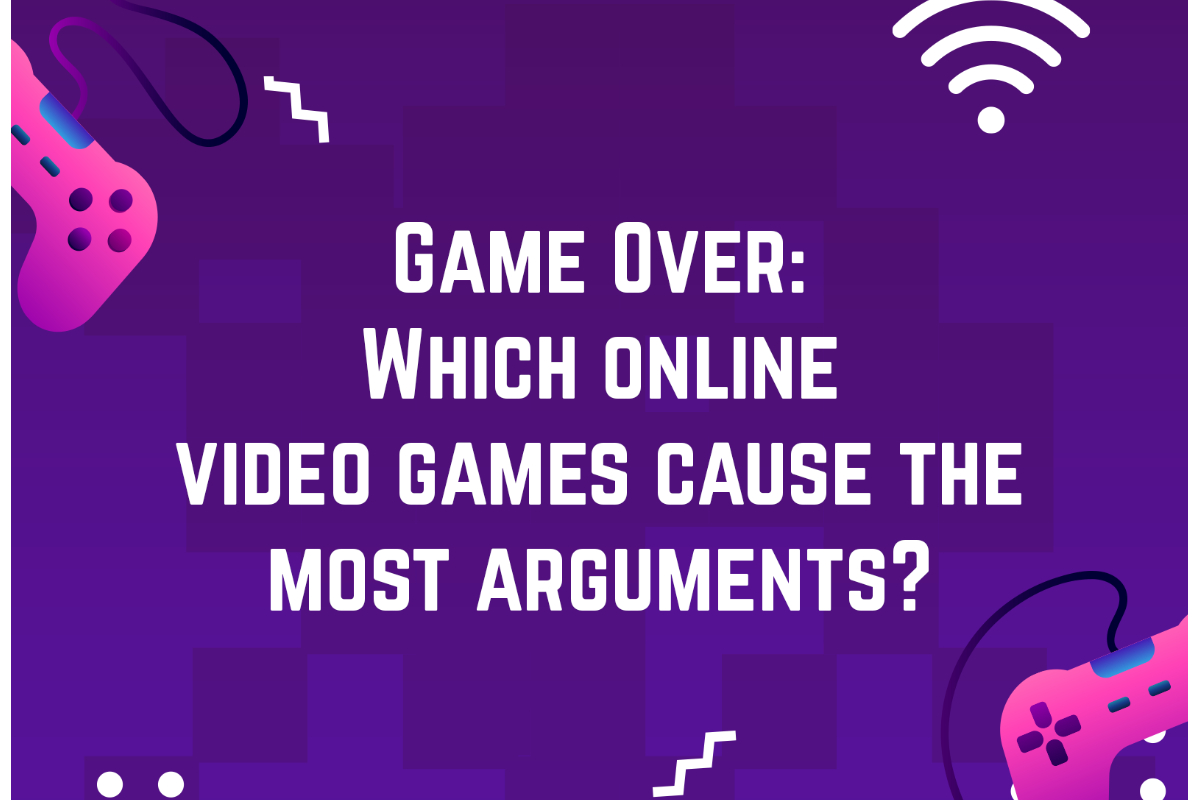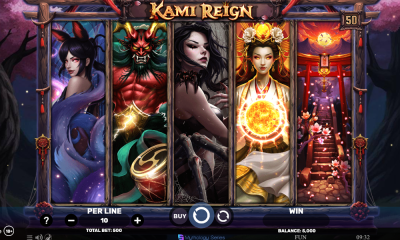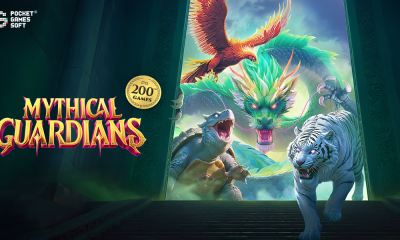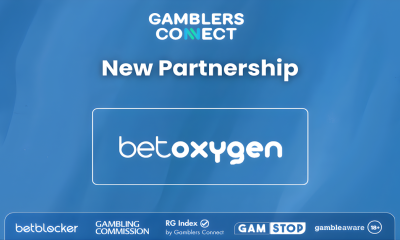Latest News
REVEALED: These are the Online Games that Cause the Most Arguments 🎮💔

- 1 in 50 couples row over gaming every day
- Call of Duty is the online game most likely to cause a rift between couples
- 1/4 Women have (unsuccessfully) tried to ban gaming in the house, compared to 1/5 Men
- 25% of men have thought about breaking up with their partner because of online gaming-related arguments, compared to 17% of women
With Valentines day almost a week away, new data from CardsChat.com reveals which online games cause the most arguments in a relationship. CardsChat surveyed 1,000 UK adults whose partner plays online games, to find out how gaming affects relationships. CardsChat also spoke to three relationship experts to explain the findings.
1 in 50 couples row over games every day
Out of the 1,000 surveyed, 1 in 50 couples said they argued over gaming every day! 1 in 25 of the respondents said they squabbled a little less, ‘just’ 250 to 300 times per year, while 3 in 25 ‘fessed up to having gaming-related rows 150 to 200 times a year.
| Arguments per year | No. of couples |
| 50-100 | 1 in 4 |
| 150-200 | 3 in 25 |
| 250-300 | 1 in 25 |
| Every day! | 1 in 50 |
According to the survey data, Call of Duty is the online game most likely to cause a rift between couples with 38% of couples admitting to have argued about time spent on the game.
Fifa is a close second, with 34% of couples confessing to argue over the football game.
According to Iain Macintosh’s book, ‘Football Manager Stole My Life’, the titular game was cited as a factor in a whopping 35 divorce cases back in 2012. However, despite these stats, we found that the addictive micromanagement game came fourth with 15%.
| Game | Argument about time spent on the game |
| Call of Duty | 38% |
| Fifa | 34% |
| Fortnite | 21% |
| Football Manager | 15% |
What the expert says:
So what’s behind these rows? Chris Pleines, a dating expert from Datingscout says forgetting important dates and a lack of quality time can contribute: “Being preoccupied with gaming will most likely let you forget what day it is, especially if you pull an all-nighter. Instead of preparing something special for your partner, you are busy levelling up on your game.”
Let’s hope that these gamers don’t forget about Valentine’s Day!
Who Is Trying — and Failing — To Ban Gaming?
1/4 Women Vs 1/5 Men
We dug deep into our research to find out who is trying to ban gaming in these households. The girls just edge it slightly, with one quarter of female respondents admitting to unsuccessfully trying to ban gaming in their house. While around one fifth of men said they had also tried unsuccessfully to put a stop to gaming in the home.
What the expert says:
We spoke to Susan Trombetti, leading matchmaker, relationship expert, and CEO of Exclusive Matchmaking, to delve even deeper into the impact of gaming on relationships. She told us: “Gaming is a way to be connected without really connecting with people thus sometimes increasing your social isolation. This can cause issues for relationships.”
Her advice? “Some things you can try are limiting time spent on the game instead of banning them altogether. Opposed to making your household a gaming free household, if your partner enjoys it, consider limiting the time gaming, similar to how you may set boundaries like no phones while eating dinner together. Small compromises may work for you and your partner.”
Gaming Causing Break-Ups
25% Men Vs 17% Women
Have thought about breaking up with their partner over gaming
Our data reveals that 25% of men have thought about breaking up with their partner because of online gaming-related arguments. Compared to 17% of women surveyed admitting they’ve considered calling time on a relationship for the same reason.
What the expert says:
Dainis Graveris, a certified sex educator and relationship expert at SexualAlpha suggests that: “When people play online games, they become a part of something that involves responsibilities, loyalties, and interactions. These interactions, however, don’t spill through with their relationships offline.
And why does this seem to bother more men than women? Dainis says:” it boils down to the male gamer’s motivations for playing online games that’s why you can find that most of them get into serious fights with their partners and have thought about breaking up with them.
For instance, some male gamers feel that playing online games helps alleviate stress, serves as an outlet for negative energy, and/or helps them regain a sense of control. When their female partners don’t understand their motivations, they take offense and get into serious arguments”.
Peace of the action
Considering how many relationships are on the ropes due to online gaming, we started thinking about how couples can avoid the agro.
The simple solution? Get gaming included in your vows
‘Do you [insert name] promise to play only an hour of gaming a day?’
‘I promise never to ban gaming in the house’
‘I vow to always put you first, even when I’m playing Fortnite’
‘I promise never to keep score, even when I’m beating you at FIFA’
‘I vow to never let the PS5 come between us’
‘I [insert name], take thee, [insert name]….forsaking all others…’til COD do us part’
‘What’s mine is yours and what’s yours is mine…except the Xbox’
Powered by WPeMatico
Arizona
Arizona Department of Gaming Reports $44.9 Million in Tribal Gaming Contributions for the Second Quarter of Fiscal Year 2026

The Arizona Department of Gaming (ADG) announced today $44,891,270 in tribal gaming contributions to the Arizona Benefits Fund for the second quarter of Fiscal Year (FY) 2026. This represents an approximate 5.6 percent increase when compared to the same quarter of FY 2025.
“The financial support that tribal gaming provides the state of Arizona continues to power local and statewide needs that are vital to healthy and safe communities,” said Jackie Johnson, Director of the ADG. “With nearly $45 million in tribal gaming contributions in the most recent period, the Department is proud to ensure the continuation of important revenue streams that positively impact Arizonans.”
The Arizona Benefits Fund receives 88 percent of tribal gaming contributions, providing significant dollars to support instructional improvement for schools, trauma and emergency care, tourism, and wildlife conservation throughout the state. If interested in viewing the cumulative tribal gaming contributions by year, please visit our reports webpage: gaming.az.gov/resources/reports.
Tribal gaming contributions to the Arizona Benefits Fund for the second quarter of the State’s FY 2026 are as follows:
Instructional Improvement Fund/Education………………………………………………..$22,373,810
Trauma and Emergency Services Fund………………………………………………………..$11,186,905
Arizona Department of Gaming Operating Costs………………………………………….$4,040,214
Arizona Wildlife Conservation Fund……………………………………………………………$3,196,258
Tourism Fund…………………………………………………………………………………………..$3,196,258
Problem Gambling Education, Treatment and Prevention……………………………..$897,825
Total: Tribal Gaming Contributions to the Arizona Benefits Fund……………………..$44,891,270
Per the Arizona Tribal-State Gaming Compact, the remaining 12 percent is distributed by the tribes to the cities, towns, and counties of their choosing for community services and public safety programs for local governments. Since FY 2004, cumulative contributions have totaled approximately $2.5 billion, benefitting both the state and its cities, towns, and counties.
Currently, there are 26 Class III casinos in Arizona, which ADG regulates in partnership with Arizona tribes. For more information, view our tribal gaming webpage: gaming.az.gov/tribal-gaming-page.
The post Arizona Department of Gaming Reports $44.9 Million in Tribal Gaming Contributions for the Second Quarter of Fiscal Year 2026 appeared first on Americas iGaming & Sports Betting News.
888.it
R. Franco Digital Shortlisted for Casino Platform Excellence at EGR Europe Awards 2026

R. Franco Digital, the leading Spanish iGaming provider, has been officially shortlisted for Casino Platform Supplier of the Year at the prestigious EGR Europe Awards 2026. The nomination recognizes a landmark year for the company, characterized by the explosive growth of its IRIS Open Omnichannel Platform and a major commercial breakthrough into the Italian market.
The winners will be announced during a gala ceremony on February 18, 2026, at the Hilton Malta, where the industry’s top-tier operators and suppliers gather to celebrate European gaming excellence.
IRIS: The Engine of Omnichannel Growth
The core of R. Franco Digital’s success lies in its IRIS platform, a highly scalable, multi-jurisdictional solution that unifies casino, sports betting, and retail management.
IRIS Platform Milestones (2025-2026):
-
Jurisdictional Reach: Certified in 6 jurisdictions and operational in over 10 regulated markets.
-
Content Depth: Seamlessly integrated with over 1,600 games from global third-party providers.
-
Operational Stability: Provides 24/7 multilingual support and advanced real-time analytics for operators.
-
Commercial Momentum: Secured 50+ new operator partnerships and entered three new markets within the last 12 months.
Performance Highlights: 4 Billion Game Rounds
R. Franco Digital’s games portfolio has seen a massive surge in engagement, bolstered by 20 new high-performance slot releases in 2025. Standout titles such as Strange Spins, Aphrodite, Zorro: Final Duel, Ovomon, and The Phantom contributed to a record-breaking year.
| Metric | 2025–2026 Achievement |
| Total Game Rounds | 4 Billion+ across regulated markets |
| Revenue Growth | 30% Increase during the judging period |
| New Content | 20 New slot titles launched |
| Expansion | Debut in the Italian regulated market |
Strategic Italian Market Entry
A major factor in the EGR shortlisting was R. Franco Digital’s successful entry into Italy. The provider rapidly localized its content to meet the specific demands of Italian players through tier-one partnerships:
-
Stanleybet.it: Launched 19 games, including the Italian-exclusive debut of Strange Spins.
-
888.it: Successfully rolled out the popular Super 7 3×3 title.
“We’re proud to be shortlisted for this award, which reflects the strength of our IRIS platform and the quality of the content we’ve delivered over the past year,” said Javier Sacristán Franco, International Business Director at R. Franco Digital. “Our team has worked hard to support operators with reliable, innovative solutions… we are delighted to see that effort recognised.”
The post R. Franco Digital Shortlisted for Casino Platform Excellence at EGR Europe Awards 2026 appeared first on Eastern European Gaming | Global iGaming & Tech Intelligence Hub.
Big Hot Flaming Pots
Big Hot Flaming Pots: Tasty Treasures – Lightning Box Brings Land-Based Hit Online

Light & Wonder has officially launched Big Hot Flaming Pots: Tasty Treasures, the digital debut of its highly successful land-based franchise. Developed by in-house specialist studio Lightning Box, this 3×5 slot offers 243 ways to win and a high-energy “three-pot” mechanic that has already become a staple on casino floors worldwide.
The game transitions the whimsical “dumpling-tossing” theme to online audiences, combining vibrant Asian-inspired aesthetics with a deep mathematical model designed for high-engagement sessions.
The Three-Pot Mechanic & Seven Feature Combinations
At the core of the gameplay is the persistent pot system. Landing specific colored coins fuels three separate pots—Yummy, Spicy, and Upsized. These pots can trigger individually or in any combination, leading to seven distinct bonus paths.
| Feature Mode | Gameplay Enhancement |
| Yummy Mode | Increases the Hold & Spin respin counter from 3 to 4, significantly extending bonus life. |
| Spicy Mode | Introduces Chilli multipliers; landing a pepper adds its cash value to every symbol currently held on the board. |
| Upsized Mode | Unlocks a Dual Grid (two reel sets) for the Hold & Spin round, doubling the win potential. |
| Combined Modes | Triggering all three at once creates the “Mega Bonus,” featuring dual grids, 4 respins, and value-boosting peppers. |
Innovation: The Stack N’ Hit Feature
Feature
Unlike traditional Hold & Spin mechanics where symbols simply lock until the round ends, Tasty Treasures introduces the Stack N’ Hit evolution.
evolution.
-
Reel Clearing: When a vertical reel is filled with Bun symbols, the prizes are instantly collected, and the reel is cleared.
-
Persistent Respins: Clearing a reel creates open spaces for new prizes to land, allowing the bonus round to continue far longer than standard industry alternatives.
-
The Path to Grand: Each cleared reel activates a “Pepper Tracker” above it. Lighting up all five trackers awards the Grand Progressive Jackpot.
Jackpot Tiers & Base Game Depth
Operators benefit from a versatile math model that supports both consistent base-game performance and high-volatility jackpot chases.
-
Progressive Jackpots: Grand and Major tiers for life-changing win potential.
-
Fixed Jackpots: Minor and Mini tiers awarded through symbols landing during features.
-
Nudge Wilds: In the base game, Wild symbols can nudge to cover entire reels, assisting in achieving the 243-way payouts.
“Big Hot Flaming Pots: Tasty Treasures carries forward a brand that has already made its mark in land-based venues,” says Michael Maokhamphiou, Studio Director at Lightning Box. “This release offers operators a flexible, high-performing title that combines familiarity with fresh layers of engagement.”
The post Big Hot Flaming Pots: Tasty Treasures – Lightning Box Brings Land-Based Hit Online appeared first on Eastern European Gaming | Global iGaming & Tech Intelligence Hub.
-

 Hold and4 days ago
Hold and4 days agoPragmatic Play Rings in 2026 with Joker’s Jewels Hold & Spin™
-

 iGaming News 20264 days ago
iGaming News 20264 days agoSpinomenal Rings in 2026 with Japanese-Inspired “Kami Reign Ultra Mode”
-

 Five Elements Slot4 days ago
Five Elements Slot4 days agoPG Soft Concludes 2025 with High-Volatility Launch: Mythical Guardians
-

 Latest News4 days ago
Latest News4 days agoFrom ‘Mummyverse’ to Crash Games: Belatra Reviews a Landmark 2025
-

 Bespoke Gaming Studio4 days ago
Bespoke Gaming Studio4 days agoCreedRoomz and Casumo Forge Strategic Partnership to Elevate Live Casino Experience
-

 Aztec Slot3 days ago
Aztec Slot3 days agoEvoplay Unveils Sunstone Riches: An Aztec Adventure Powered by the Sun
-

 Akshat Rathee3 days ago
Akshat Rathee3 days agoIndian Esports 2026: Strategic Growth and the Asian Games Milestone
-

 B2B gaming software4 days ago
B2B gaming software4 days agoGamblers Connect and BetOxygen Announce Strategic B2B Partnership

















